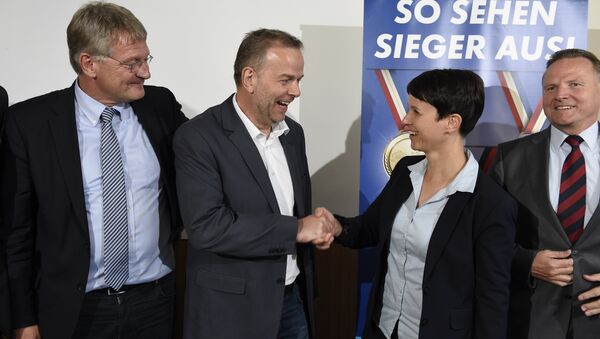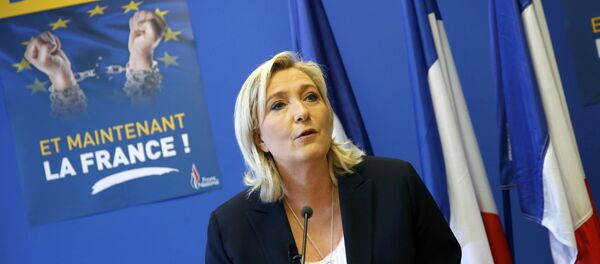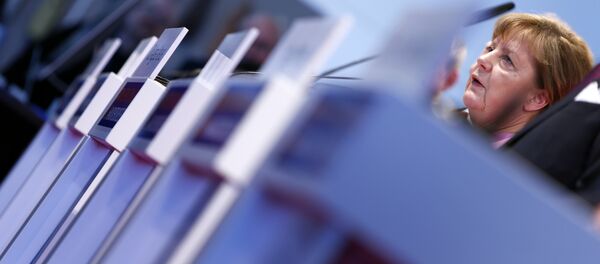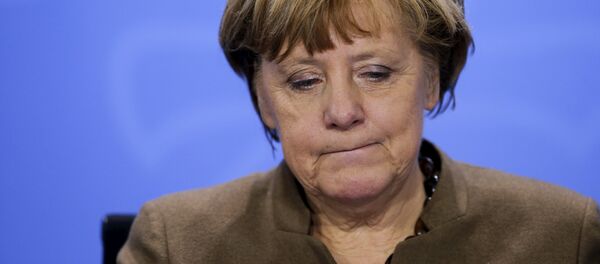On Sunday, the eastern German state of Mecklenburg-Western Pomerania held state elections with AfD winning 21 percent of the vote, beating Merkel's conservative Christian Democrats (CDU), which finished in third place.
"This success is phenomenal. We gained from all the other parties. Unfortunately for them, they just assured, that they will not change their course of Willkommenskultur [welcoming culture]. Therefore our next victory in Berlin (18 September) is on the books," Ronald Glaeser said.
All the parties now represented in the state parliament have ruled out forming any coalition with the AfD.
The AfD's second result became a sensitive blow to Merkel's party in Mecklenburg-Western Pomerania, which her own constituency Stralsund falls into. On Monday, CDU's general secretary Peter Tauber admitted that voters "wanted to send a signal of protest, as we had noticed in discussions about refugees."
The party known for its anti-Islam and anti-migrant stance was established in 2013 and since then has entered 8 out of 16 local parliaments, not counting Mecklenburg-Western Pomerania.
This summer’s attacks across Germany raised fears about Islamic terrorism and helped to increased the AFD's support. Merkel’s approval rating, in contrast, fell by 12 points within a month to 47 percent in August with nearly two thirds of respondents disapproving of the chancellor's refugee policy, according a poll conducted by Infratest Dimap in August.





